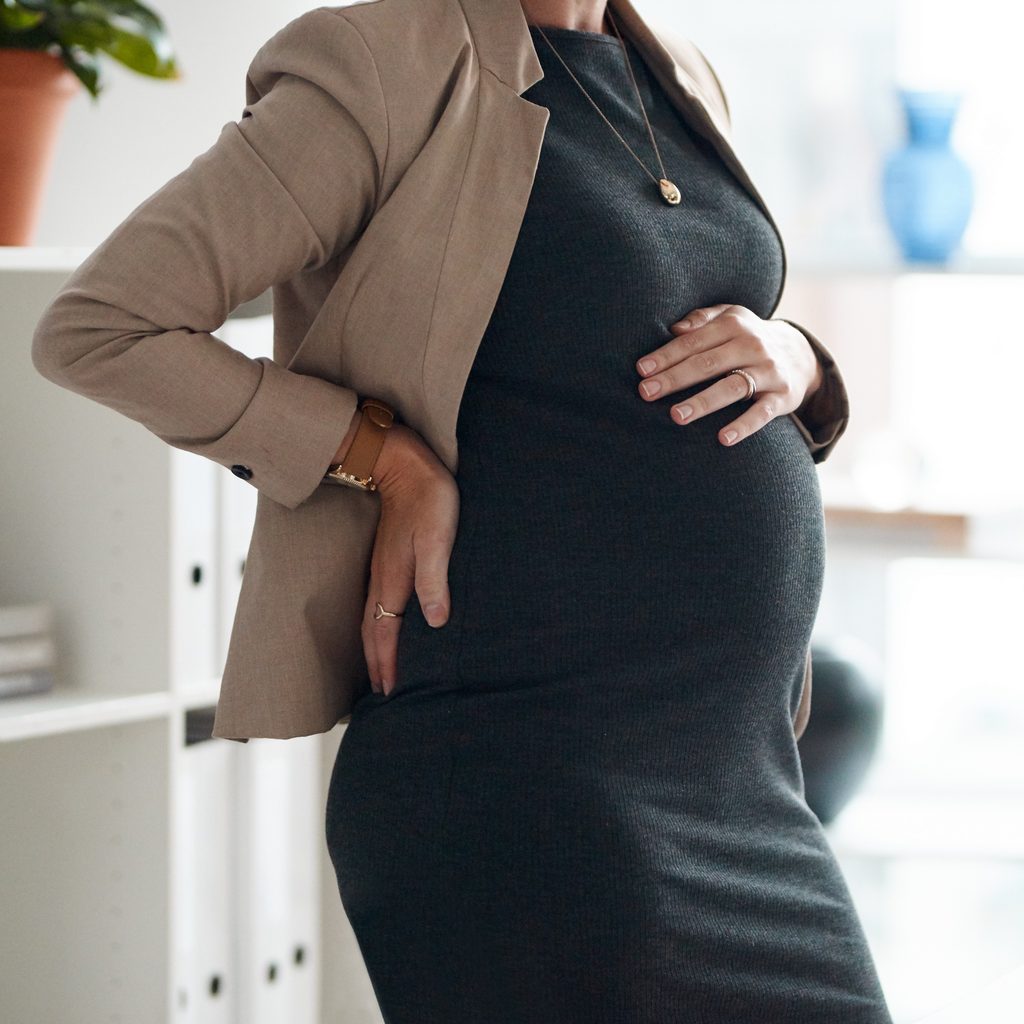
Getting a regular manicure is something many people do but can you still keep your regular manicure appointment while pregnant? Pregnancy has you constantly questioning whether it’s safe to do the things you did before you were pregnant, like not drinking alcohol and smoking. While these things are common knowledge, many don’t know that pregnant women are warned against other things like eating sushi, scooping the litter box, and soaking in a hot tub. The list of things pregnant women can’t do is seemingly endless, therefore it makes sense to wonder if you can get your nails done while pregnant.
Thankfully, you really shouldn’t have to give up your regular mani and pedi appointment, because getting your nails done is mostly safe during pregnancy, although there are still some safety factors and precautions to keep in mind. Just because this is another area that requires a little research doesn’t mean you can’t enjoy it, so read up and then get that mani you’ve been craving.
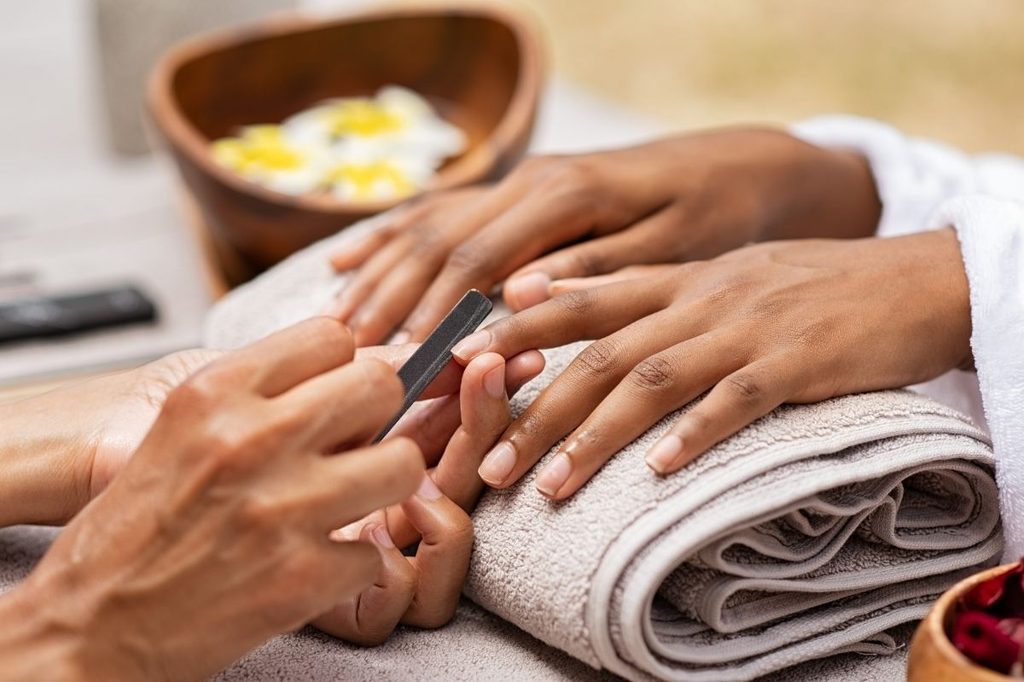
Can you get your nails done while pregnant?
The short answer is yes, in most cases, but there are a few considerations.
One of the main concerns with getting your nails done while pregnant relates to getting a skin infection from equipment that hasn’t been properly cleaned. So make sure you’re going somewhere that practices good hygiene. Visit the place, read reviews, and ask questions about cleaning practices. You should also reschedule your appointment if you have an open cut where bacteria could get into your bloodstream. You could, of course, also DIY at home.
Secondly, some chemicals in nail polishes and nail polish remover can be toxic to a developing fetus, so do your research on pregnancy-safe nail polish and try to get your nails done in a space with good ventilation to avoid inhaling too much of the products’ chemicals in the air. Many nail products contain volatile organic compounds (VOCs), which are of concern but usually evaporate in the air, so ventilation is key. Ask to sit by a fan or an open window, if possible.
It’s important to note that even if you request certain products, others in the salon may not be making the same choices, and their fumes will be released into the same room. Another option is to get your nails buffed and filed, your cuticles cut, and your hands moisturized at a salon without getting any polish. Sometimes, the pampering matters more than the final product.
Lastly, there are pressure points in the hands and feet that can possibly induce preterm labor. While these claims about acupressure aren’t completely backed by science, it’s something to consider. You might want to skip any of the massaging elements of a manicure or pedicure or ask your manicurist or pedicurist to avoid any pressure points and use a lighter touch. This is a non-issue if you’re painting your nails yourself.
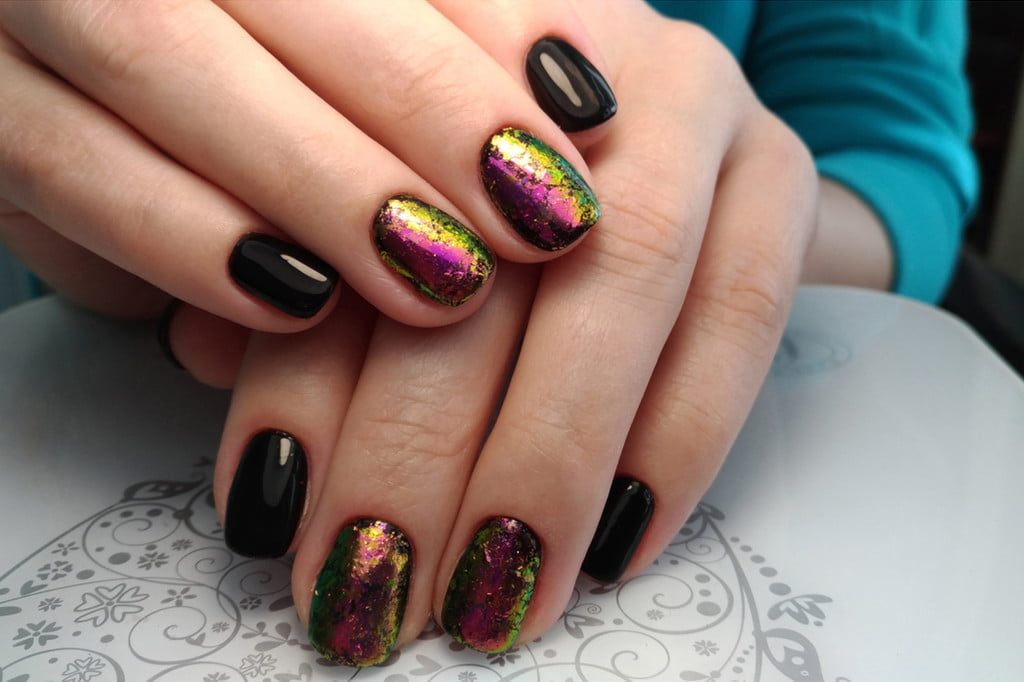
Pregnancy-safe nail polish: What chemicals to avoid and which are safe
Not all polishes (or primers and removers) are created equal. When looking for pregnancy-safe nail polish and other nail products, avoid any of the following that contain these potentially harmful chemicals:
- Camphor
- Dibutyl phthalate (DBP)
- Ethyl tosylamide
- Formaldehyde and formaldehyde resin
- Parabens
- Tert-butyl hydroperoxide
- Toluene
- Triphenyl phosphate (TPHP)
- Xylene
These chemicals are the 10 that can cause reproductive issues, nausea, dizziness, liver damage, hormone disruption, headaches, seizures, and more. You’ll see the term “10-free” around, and that means that the polish is free of all 10 of these chemicals. You may also see “3-free,” “5-free,” or “7-free,” which refers to a lack of some but not all of these ingredients. Even a “3-free” polish is likely safe for pregnancy, but why not go for even more?
The terms “non-toxic” and “water-based” are good indicators when shopping, as well as looking for polishes marketed to be safe for use by children. In the end, reading the ingredient list and scanning for the terms above is the most important way to determine if your polish is safe.
Some nail polish brands that say they are safe for pregnancy include:
- BONTIME (5-free)
- Jolie Vegan (10-free)
- Karma Organic (7-free)
- Piggy Paint (7-free)
- Ten Free Chemistry (10-free)
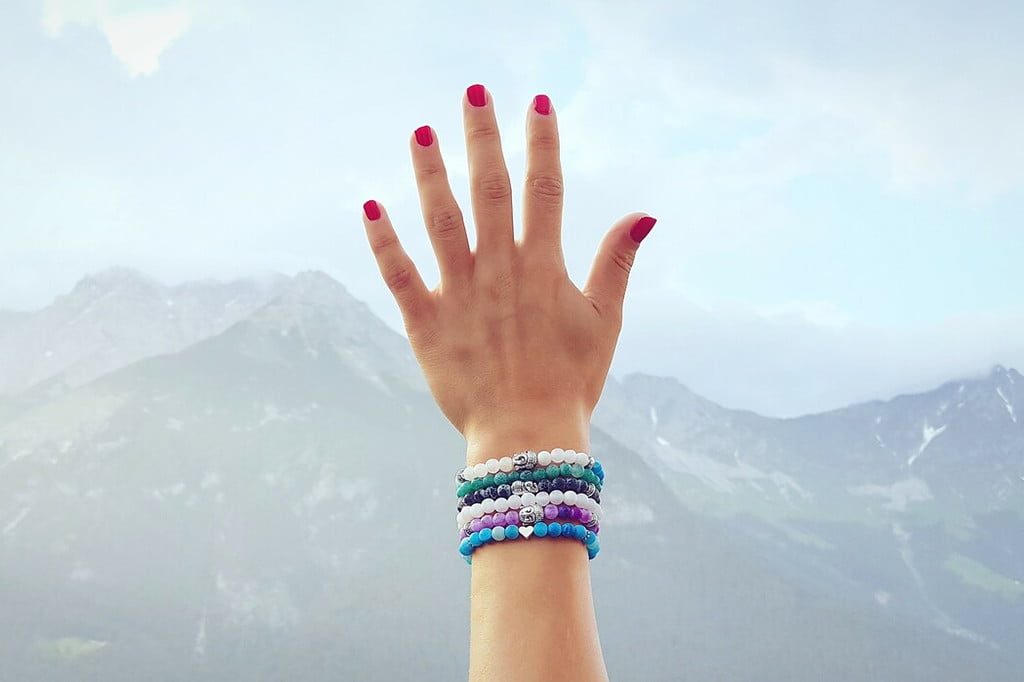
Can you get acrylic nails while pregnant?
Before pregnancy, you had a standing appointment at the nail salon every two to three weeks for a fill, and now you’re wondering if you have to give up those beautifully manicured acrylic nails for the next 9 months. Similar to regular manicures, you’ll want to ensure any room where you’re getting your acrylic nails done is a well-ventilated space, especially if you’re removing an old set. You’ll also want to ensure your nail tech is using sterilized instruments to avoid the risk of any kind of infection.
When a technician applies acrylic nails, they file and buff your natural nails to allow for better adhesion. This can damage your natural nails, which may already be weakened thanks to those hormone fluctuations that come with pregnancy. So while it’s your choice whether you want to keep your standing nail appointment, Hilda Hutcherson, MD, clinical professor of obstetrics and gynecology at Columbia University Medical Center suggests waiting until after your baby is born to resume your regular nail appointment.
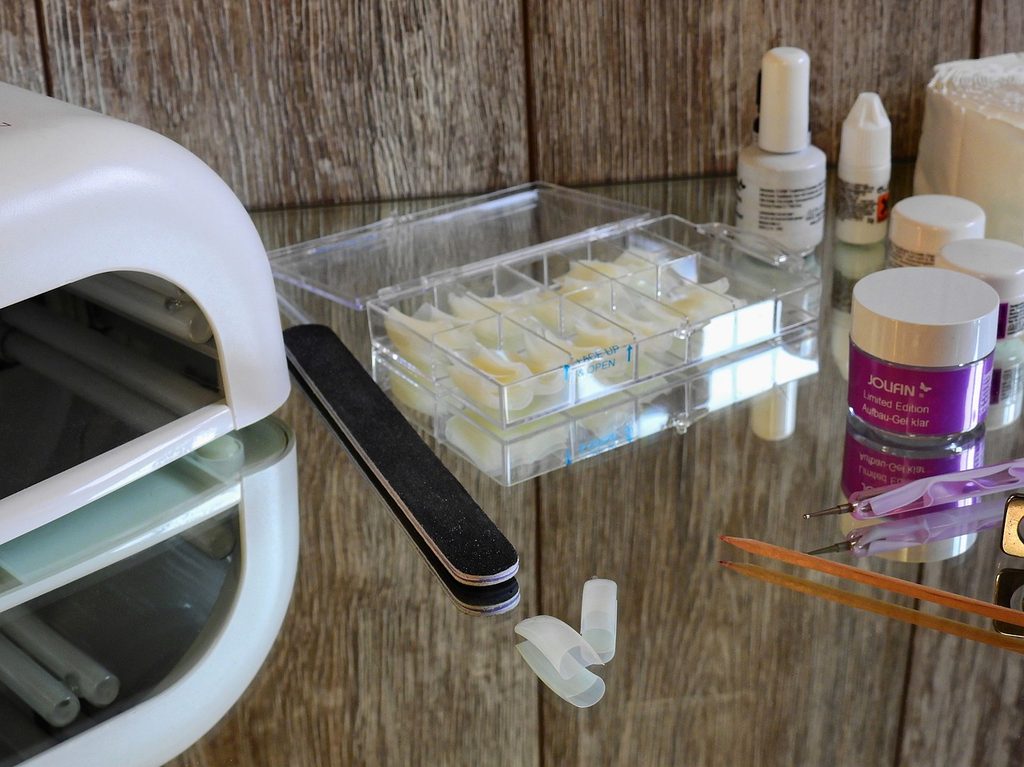
Are gel nails safe during pregnancy?
Although most manicures are considered safe during pregnancy, many experts suggest avoiding gel manicures until after your baby arrives. The reason for this is mostly due to the UV lights required to cure the nail polish. Although your exposure to UV lights is minimal, there haven’t been a lot of studies done on how UV rays could impact a pregnancy.
Pregnancy hormones can also make your skin more sensitive than usual and if you get any of the gel polish on your skin you could have an allergic reaction. This may be a good time to give your nails a break from your regular gel manicures and opt for one of the pregnancy-safe polishes listed above.
Pregnancy is full of trade-offs for safety and wondering how high the risks of things like eating deli meat really are. Can you get your nails done while pregnant? If you’re unsure of the risk, you should have a conversation with your doctor. No matter what you choose, there are ways to make nail painting as safe as possible, like using certain polishes and avoiding their fumes with good ventilation. Manicures may look a little different for nine months, but it’ll be one of the many sacrifices that are worth it in the end.



